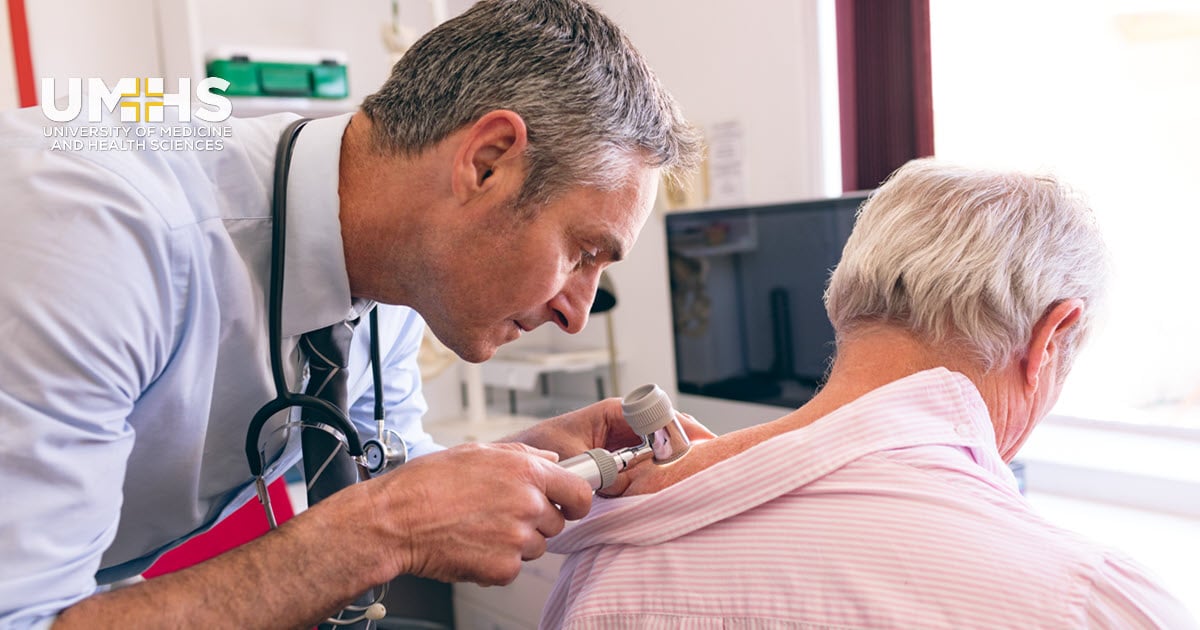Chromaderm Doncaster: Your Best Dermatologist for Advanced Skin Care
Chromaderm Doncaster: Your Best Dermatologist for Advanced Skin Care
Blog Article
Checking Out the Function of Skin Specialists in Identifying and Treating Diverse Skin Disease With Accuracy
From typical issues like acne and dermatitis to a lot more complex problems such as melanoma or rare genetic skin conditions, skin specialists are at the leading edge of diagnosing and dealing with these problems with accuracy. Beyond the surface of skin problems exist interconnected variables that influence diagnosis and treatment outcomes.
Importance of Early Detection
Very early detection of skin conditions plays a crucial role in the reliable therapy and administration by skin specialists. Dermatologists count on their competence to identify subtle modifications in the skin that might suggest underlying problems, such as skin cancer, psoriasis, dermatitis, or dermatitis.
Additionally, very early discovery makes it possible for dermatologists to tailor therapy plans to the certain needs of each individual. Discovering skin cancer cells in its early stages substantially boosts the diagnosis and boosts the likelihood of successful treatment results. By intervening early, skin doctors can additionally aid ease signs, avoid intensifying of the condition, and boost the general quality of life for their patients. Stressing the relevance of early detection highlights the essential function that dermatologists play in promoting skin health and health.
Advanced Diagnostic Strategies
Using state-of-the-art technology and specific proficiency, skin doctors use innovative analysis methods to precisely determine and analyze numerous skin problems. By multiplying the skin, dermoscopy help in the early detection of melanoma, basic cell cancer, and various other skin cancers.
Additionally, molecular screening has revolutionized the diagnosis and therapy of skin diseases by allowing skin doctors to analyze hereditary anomalies connected with conditions such as melanoma and hereditary dermatoses. Through methods like polymerase domino effect (PCR) and next-generation sequencing (NGS), skin specialists can supply tailored therapy plans based on a patient's certain hereditary profile. These sophisticated analysis tools improve the accuracy and efficacy of skin-related treatment, eventually causing better outcomes for patients.

Tailored Treatment Approaches
With a comprehensive understanding of skin disease achieved via sophisticated diagnostic methods, dermatologists customize therapy methods to attend to individual client requires properly. This personalized technique is important in guaranteeing optimal outcomes for clients with diverse skin disease. By taking into consideration aspects such as skin type, medical background, way of life routines, and therapy preferences, skin specialists can establish treatment strategies that are especially customized to each client.
Tailored treatment approaches may involve a mix of treatments such as topical medicines, dental drugs, minimally intrusive treatments, or way of living adjustments. For example, patients with acne may take advantage of a program that includes topical retinoids, dental anti-biotics, and in-office procedures like chemical peels or laser therapy. On the various other hand, people with eczema might require a therapy strategy concentrated on gentle skincare routines, moisturizers, topical corticosteroids, and determining and avoiding triggers that worsen their condition.

Taking Care Of Persistent Skin Problems
Skin doctors play a critical duty in developing long-term monitoring strategies for chronic skin disease, making sure reliable care and enhanced top quality of life for patients - Chromaderm Melbourne. Managing chronic skin conditions needs a comprehensive strategy that exceeds simply treating signs and symptoms. Skin specialists are educated to not just detect these problems accurately but also to produce individualized therapy strategies that deal with the underlying factors and causes contributing to the skin disease's perseverance
In managing chronic skin disease, skin specialists usually use a mix of treatment modalities tailored to each patient's particular needs. This may include topical medications, oral medications, lifestyle adjustments, and procedural interventions such as laser therapy or phototherapy. Regular follow-up appointments are important to keep track of the condition's progress, adjust therapy as required, and supply recurring assistance and education and learning to patients.
Moreover, dermatologists play a pivotal duty in encouraging people to take an energetic function in managing their skin problem. By informing clients about their problem, treatment options, and safety nets, skin specialists help patients make educated decisions and grow healthy and balanced skin habits that add to long-term skin wellness and general well-being.
Collaborative Treatment Methods
In the alternative management of skin problems, collective care approaches including various health care professionals are important for maximizing individual outcomes. Dermatologists commonly work in multidisciplinary groups to give thorough care that addresses the varied requirements of clients with skin problem. By teaming up with primary care medical professionals, specialists, cosmetic surgeons, and other experts, dermatologists can guarantee that people receive integrated and collaborated treatment tailored to their particular condition.
Joint treatment strategies likewise encompass person education and support. Skin specialists can work closely with pharmacologists, psychologists, and nurses to inform individuals concerning their skin problem, therapy alternatives, and preventative actions. This interdisciplinary approach empowers patients to actively get involved in their care and make informed choices regarding their health.
Moreover, joint treatment enables a much more alternative assessment of clients, taking into account not just the physical signs and symptoms of their skin problem however likewise the social and psychological impact it might have. By taking into consideration the more comprehensive effects of skin disease, healthcare professionals can create extra personalized therapy strategies that attend to the special needs of each patient. Inevitably, collective care strategies play an important role in supplying high-quality, patient-centered treatment for individuals visite site with varied skin conditions.
Conclusion
To conclude, skin specialists play an essential duty in identifying and dealing with a vast array of skin disease useful link with precision. Via early discovery and advanced diagnostic techniques, they are able to provide tailored treatment methods for optimum outcomes. By handling persistent skin conditions and carrying out collaborative care strategies, skin specialists make certain detailed and reliable treatment for their clients. Their knowledge and devotion add substantially to the total health and wellness of people with varied skin issues.
Skin specialists count on their knowledge to identify refined changes in the skin that may indicate underlying issues, such as skin cancer cells, psoriasis, dermatitis, or dermatitis. By amplifying the skin, dermoscopy help in the very early detection of cancer malignancy, basal cell carcinoma, and other skin cancers cells.With a comprehensive understanding of skin problems achieved with advanced diagnostic methods, skin specialists tailor therapy strategies to resolve specific patient requires properly. Skin specialists are trained to not just identify these conditions properly however also to develop individualized treatment strategies that deal with the underlying click here to find out more causes and aspects adding to the skin condition's persistence.
In taking care of persistent skin conditions, skin doctors commonly utilize a mix of treatment methods tailored to each person's particular requirements.
Report this page